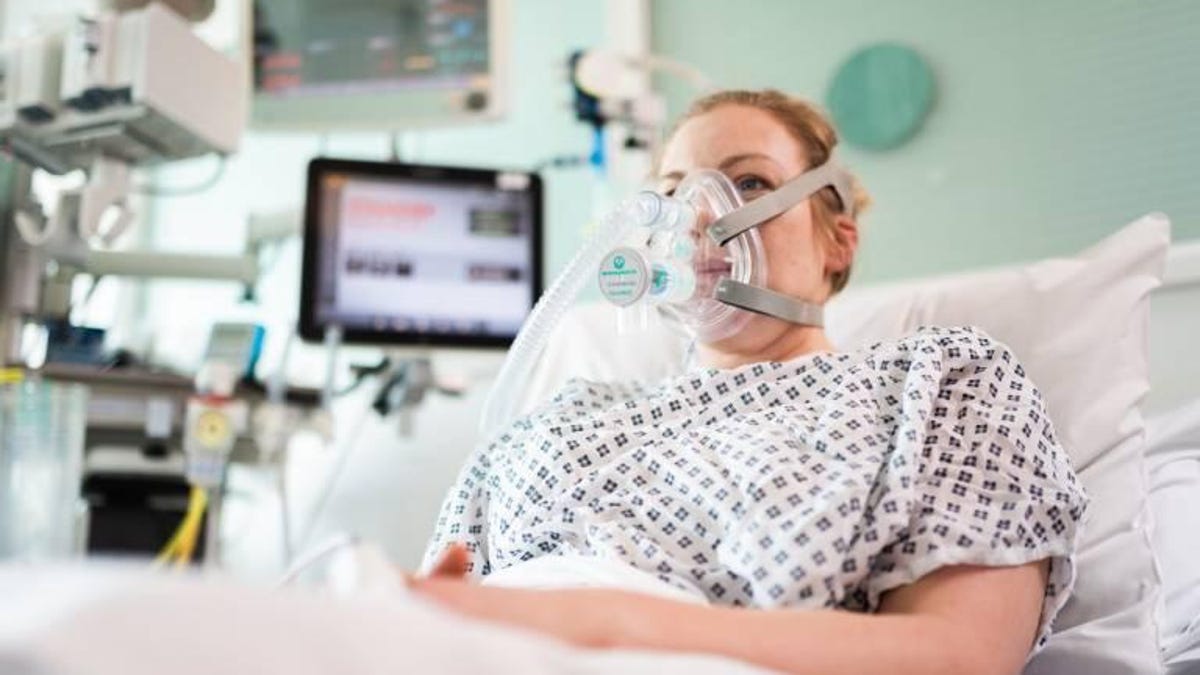Formula One engineers help create breathing aids for coronavirus patients
The machines, which could go into production within a week, will hopefully reduce the number of COVID-19 patients who need to be put on ventilators.

A volunteer "patient" with the newly developed CPAP device.
Mercedes Formula One engineers and researchers at University College London have together created a coronavirus breathing aid in less than 100 hours that has been approved for use within the UK's National Health Service.
Since March 18, the researchers and engineers have been working to develop the breathing devices together with clinicians at UCL Hospital, where they will now undergo clinical trials. The aids have already been cleared for use by the UK's regulator, the Medicines and Healthcare products Regulatory Agency (MHRA), and Mercedes can begin producing 1,000 machines per day in a week's time for immediate delivery to hospitals.
"Given the urgent need, we are thankful that we were able to reduce a process that could take years down to a matter of days," said UCL Mechanical Engineering Professor Tim Baker in a statement. "From being given the brief, we worked all hours of the day, disassembling and analysing an off-patent device."
The aid is known as a Continuous Positive Airway Pressure (CPAP) machine, and it fits over a patient's mouth to help them breathe by pushing an air-oxygen mix into the mouth and nose at a continuous rate. It's a less invasive alternative to the ventilators that require patients to be sedated and intubated -- an intervention necessary to treat the most serious cases.
With ventilators in short supply in the UK, as they are in many places across the world, the hope is that the CPAP devices will reduce the number of people who need to be admitted to intensive care and put on a ventilator after being hospitalized with COVID-19. According to UCL's press release, reports from Italy indicate that approximately 50% of patients given CPAP have avoided the need for mechanical ventilation.
"These devices will help to save lives by ensuring that ventilators, a limited resource, are used only for the most severely ill," said UCLH Critical Care Consultant Mervyn Singer in a statement.
The production of CPAP machines complements wider efforts by the UK manufacturing industry to produce more ventilators. These include a project by Dyson, which has developed its own ventilator (although it still needs approval from the MHRA), and an effort by a consortium of auto makers and other engineering companies to manufacture ventilators based on an existing design.

